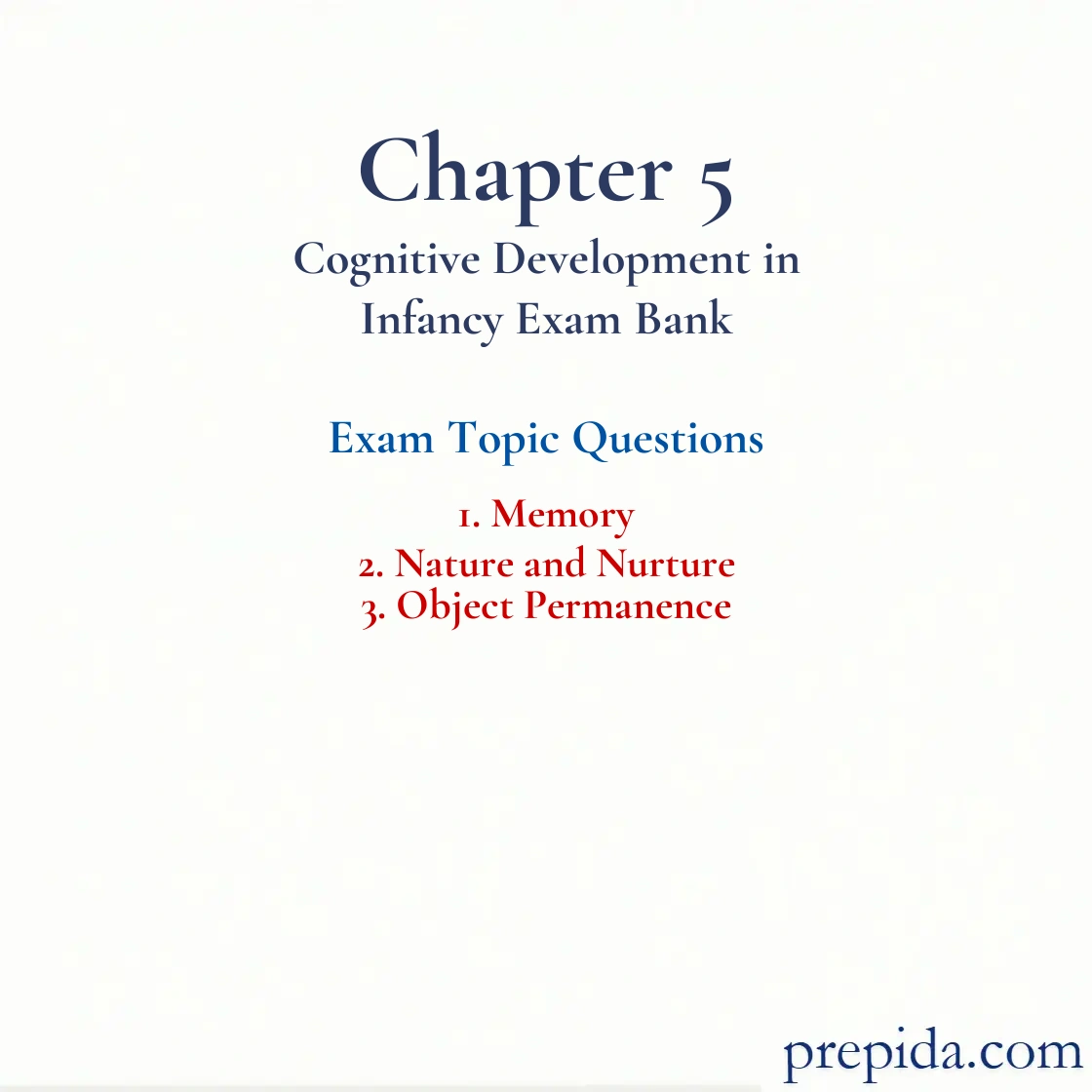
When Abraham describes to his friend what he did during his last summer vacation, he relies on his ________ memory.
- implicit
- explicit
- procedural
- semantic
Explicit Memory: Memory of facts and experiences that individuals consciously know and can state.
________ involves the retention of information over time.
- Attention
- Memory
- Cognition
- Organization
Memory: A central feature of cognitive development, pertaining to all situations in which an individual retains information over time.
Martha was a very good swimmer during her twenties. Because of an injury, she was unable to swim and gave up the sport entirely. After several years, she visits a swimming pool and feels apprehensive about getting into the water as she believes she has forgotten her swimming skills. However, after she gets into the water, she is surprised that she can swim well and believes that with a bit of practice, she can regain her former skills. In this scenario, which of the following is most likely responsible for Martha's recollection of her swimming skills?
- joint attention
- implicit memory
- habituation
- explicit memory
Implicit Memory: Memory without conscious recollection; involves skills and routine procedures that are automatically performed.
June knows the names of all the states that comprise the United States. The names of the states are part of June's ________ memory.
- innate
- explicit
- distinctive
- implicit
Explicit Memory: Memory of facts and experiences that individuals consciously know and can state.
Renee remembers very little about the first three years of her life. Psychologists find this normal and refer to it as
- retroactive memory interference.
- infantile amnesia.
- child memory loss.
- memory trace.
Memory: A central feature of cognitive development, pertaining to all situations in which an individual retains information over time.
Most researchers find that babies do not show ________ until the second half of the first year.
- dishabituation
- explicit memory
- habituation
- implicit memory
Explicit Memory: Memory of facts and experiences that individuals consciously know and can state.
Remembering how to swim is an example of
- implicit memory.
- deferred imitation.
- joint attention.
- explicit memory.
Implicit Memory: Memory without conscious recollection; involves skills and routine procedures that are automatically performed.
Identify a true statement about infant memory development.
- Babies show explicit memory until the second half of the first year.
- Most of young infants' implicit memory of perceptual-motor actions can be substantial.
- Explicit memory weakens during the second year of life.
- Most of young infants' conscious memories are strong and long term.
Implicit Memory: Memory without conscious recollection; involves skills and routine procedures that are automatically performed.
From about 6 to 12 months of age, the maturation of the ________ and the surrounding cerebral cortex, especially the frontal lobes, makes explicit memory possible.
- amygdala
- hippocampus
- hypothalamus
- cerebellum
Juno is riding a bike. Riding a bike requires Juno to use her memories of skills and routine procedures that are performed automatically; this type of memory is referred to as ________ memory.
- explicit
- implicit
- semantic
- episodic
Most of young infants' conscious memories appear to be ________, although their implicit memory of perceptual-motor actions can be ________.
- substantial; rather fragile
- well-developed; underdeveloped
- rather fragile and short-lived; substantial
- long-lasting; short-lived
Which of the following terms refers to a process in which information is transferred to memory?
- encoding
- encrypting
- assimilation
- habituation
Bonding: The formation of a close connection, especially a physical bond, between parents and their newborn in the period shortly after birth.
In considering the big issue of whether nature or nurture plays the more important role in infant development, Elizabeth Spelke endorses a ________ approach, which states that infants are born with domain-specific innate knowledge systems.
- core knowledge
- domain knowledge
- learned domain
- nurture
Core Knowledge Approach: Theory that infants are born with domain-specific innate knowledge systems.
Heather is shown a teddy bear. The teddy bear is then hidden from her, and she searches for it. This shows that Heather has developed a sense of ________.
- symbolic manipulation
- infinite generativity
- telegraphic thinking
- object permanence
Object Permanence: The Piagetian term for understanding that objects and events continue to exist even when they cannot directly be seen, heard, or touched.
Which of the following is a Piagetian term for understanding that objects and events continue to exist even when they cannot directly be seen, heard, or touched?
- joint attention
- object permanence
- internalization of schemes
- object continuance
Object Permanence: The Piagetian term for understanding that objects and events continue to exist even when they cannot directly be seen, heard, or touched.